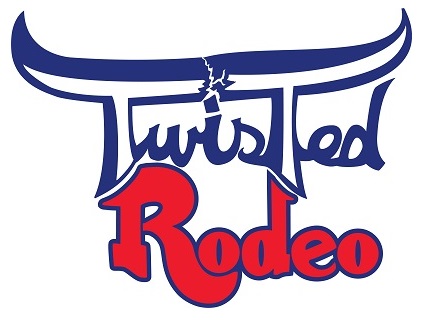LAS VEGAS – Matt Sherwood is one of the most consistent headers in the history of team roping at the Wrangler National Finals Rodeo.
You see, in two trips to Las Vegas for ProRodeo’s grand finale, Sherwood, of Pima, Ariz., has left the Thomas & Mack Center on the University of Nevada-Las Vegas campus with the world champion’s hardware, a gold buckle. That was in 2006 and 2008.

Sherwood returns to the scene of his greatest accomplishment as one of the top 15 cowboys in the field when the 2011 NFR commences Dec. 1-10 inLas Vegas.
“Making the NFR means a lot, financially and morally,” said Sherwood, who, with his wife, Kim, has seven children they raise on their eastern Arizona spread. “I haven’t made the finals the last couple of years, so it means a lot to me.”
He won his first Montana Silversmiths gold buckle five seasons ago while roping with two-time world champion Walt Woodard. Two years later, he repeated while competing with Nevadan Randon Adams. This year he’s hooked up with veteran heeler Cory Petska, a nine-time NFR qualifier fromMarana,Ariz.
“The first place we started wasReno, and I was so far behind,” Sherwood said of the late-June rodeo in westernNevada. “To come back from that far behind and be sitting in fourth place heading into the finals really gives us a boost of confidence.”
The tandem will need all the confidence it can get over the course of the rugged 10 days of ProRodeo’s championship event. The NFR features the biggest prize pool in the sport, $6 million; go-round winners will earn a check worth $17,885 each night, so this is a great opportunity for contestants to make a substantial living in just two weeks. Not only that, but dollars are points, and the cowboys with the most money won at the conclusion of the 2011 season will be crowned world champions.
“In so many ways, nothing is different than the first time I made it to the finals,” Sherwood said. “This will be the first time to the finals where I’m not in the lead in the standings. It will be a different situation as far as strategy. I’m $30,000 behind the leaders, so I’ve got some ground to make up.”
He’s willing to make that bet inLas Vegas, where he’s had plenty of success before.
“What I’ve done in the past is just go make the best run you can make on each steer,” he said. “If you start trying to do too much, sometimes you can get in a jam. You’ve got to be pretty aggressive. It’s still a 10-head rodeo, so the big thing is to catch as many as you can.”
That approach led to great things over the course of the 2011 season. Sherwood and Petska had a big-time run over Cowboy Christmas, the series of lucrative rodeos around the Fourth of July, earning $15,768 each over that stretch. That success over a few days virtually doubled Sherwood’s annual earnings to that point. Since then, he’s added $53,000.
“Without the Fourth of July like that, I don’t know if we make it to the finals,” said Sherwood, who credits his partnership with MAXX Sunglasses, Cinch and Cactus for helping him compete at a high level. “Financially it was huge. I made as much money over that weekend that I had heading up to that point. It took me from 32nd to fifth or sixth in the standings. All of the sudden, all you have to do is maintain that position instead of having to chase all year to get into that position.
“In both ways, it was a huge shot in the arm.”
A good finale would be even better medicine.
“We work all year, rodeo all year, to get to this point,” he said. “I’ve won 87,000 bucks, and I spent $50,000-$60,000 to get here. If a guy goes in there and wins $100,000, it turns your world around. If you don’t do well, then you’ve got to scrape everything you can to make it through the winter.
“Nowhere do we go where we have a chance to win that kind of money. It’s in the back of your mind that you need to do well financially.”
How do the elite contestants who earn the right to play on that stage handle the pressure of the NFR? Experience helps, of course, but so does the approach taken by Sherwood and Petska.
“Nerves can make you perform 15 percent better or 15 percent worse,” Sherwood said. “Don’t change what you’ve been doing. For me, if you what you’ve been doing all day long, it’ll be a smooth deal. If you try to change anything, then it throws a spin in the works.
“That’s not the place to change how you rope.”
